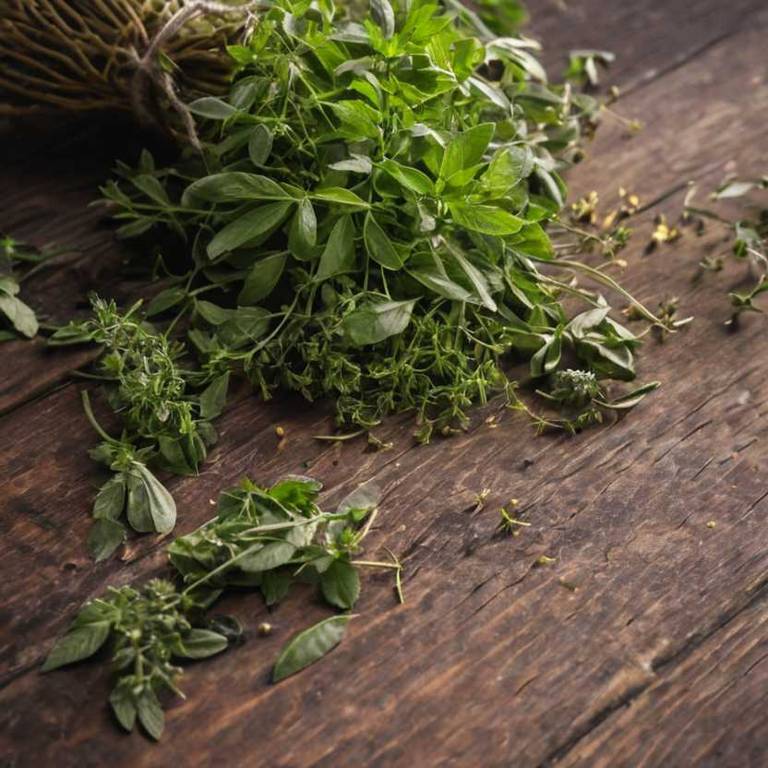By Leen Randell
Updated: Jul 05, 2024
What Are The Medicinal Properties Of Ulmus × Hollandica (Dutch Elm)?

Ulmus × hollandica, also known as Dutch elm, has health benefits such as anti-inflammatory and antioxidant properties.
The herb contains medicinal constituents like flavonoids, phenolic acids, and terpenes, which contribute to its therapeutic effects. Its medicinal preparations include teas, infusions, and extracts that can be used to treat various conditions. However, Dutch elm may cause allergic reactions or interact with certain medications.
When using this herb, it is essential to consult a healthcare professional and follow their recommended dosages and guidelines.
This article explains the health benefits, active constituents, medicinal preparations, possible side effects, and precautions related to Ulmus × hollandica.
- What are the health benefits of Ulmus × hollandica?
- What are the active constituents of Ulmus × hollandica?
- What are the medicinal preparations of Ulmus × hollandica?
- What are the possible side effect of using Ulmus × hollandica improperly?
- What precautions to take when using Ulmus × hollandica medicinally?
What are the health benefits of Ulmus × hollandica?
Ulmus × hollandica, also known as Dutch elm, has health benefits such as antioxidant and anti-inflammatory properties, which may help reduce stress and improve cardiovascular health.
The bark, leaves, and sap of the Dutch elm contain salicylic acid, a compound similar to aspirin, which may help alleviate pain and reduce inflammation.
These properties make it a potential natural remedy for various health issues.
Here's a detailed article about the 10 health benefits of Ulmus × hollandica.
What are the active constituents of Ulmus × hollandica?
Ulmus × hollandica, also known as dutch elm, has active constituents such as salicylic acid, flavonoids, and terpenoids, which possess anti-inflammatory and antimicrobial properties.
The bark of the tree is particularly rich in these compounds, which have been traditionally used in herbal medicine to treat various ailments, including fever, arthritis, and skin conditions.
The presence of salicylic acid, a compound similar to aspirin, has also led to the use of the tree's extract in pain relief and antiseptic applications.
Here's a detailed article about the 10 active constituents of Ulmus × hollandica.
What are the medicinal preparations of Ulmus × hollandica?
Ulmus × hollandica, also known as Dutch elm, has medicinal preparations such as decoctions and tinctures made from its bark, leaves, and roots.
The inner bark is said to possess anti-inflammatory and antimicrobial properties, while the leaves are used to treat fever, bronchitis, and skin conditions. The root is also used to treat various ailments, including diarrhea and respiratory issues.
These preparations are often used in traditional medicine.
Here's a detailed article about the 10 medicinal preparations of Ulmus × hollandica.
What are the possible side effect of using Ulmus × hollandica improperly?
Improper use of Ulmus × hollandica, also known as dutch elm, increases the chances of experiencing side effects such as skin irritation, allergic reactions, and respiratory issues.
Some individuals may also encounter digestive problems, including nausea and diarrhea, due to the plant's allergenic compounds.
In rare cases, prolonged exposure or excessive consumption may lead to more severe reactions, including anaphylaxis.
Here's a detailed article about the 10 most common side effects of Ulmus × hollandica.
What precautions to take when using Ulmus × hollandica medicinally?
Before using Ulmus × hollandica, also known as dutch elm, for medicinal purposes, you must take precautions such as consulting a healthcare professional to determine safe dosages and interactions with other medications.
Also, ensure the plant is properly identified and processed to avoid contamination or adulteration.
Be aware that raw or unprocessed dutch elm can be toxic in large amounts, and internal use may cause gastrointestinal side effects.
Here's a detailed article about 10 precautions to take when using Ulmus × hollandica.